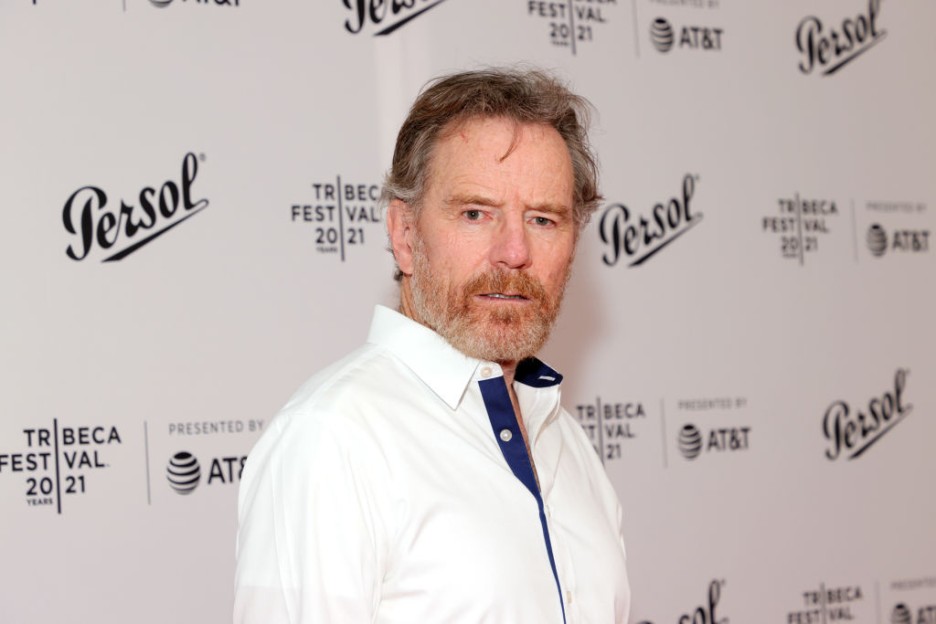At The Age of 65, Bryan Cranston is Really Examining His White Privelege: 'Things need to change, I need to change.'

Bryan Cranston is living proof that, not only can you teach an old dog new tricks, but actually, the dog can learn for himself.
What we're saying with that belabored idiom (Cranston isn't even that old; he's only 65), is that Bryan Cranston has learned over the course of the pandemic what exactly it means to have white privelege. Not only that, he's also now determined to use that privelege to further the conversation around some of the most hot-button issues in America right now - the issue of free speech versus truth.
According to a new interview with the L.A. Times, Cranston was originally set to direct one of his favorite plays, 1984's The Foreigner. The play is a comedy about a man who helps to prevent a Georgia lodge from being turned into a KKK meetinghouse - but after the last few years of civil rights protests and discussions around race and privelege, Cranston realized that a comedy about the Klan is not what the world needs right now.
"It is a privileged viewpoint to be able to look at the Ku Klux Klan and laugh at them and belittle them for their broken and hateful ideology....the Ku Klux Klan and Charlottesville and white supremacists - that's still happening and it's not funny. It's not funny to any group that is marginalized by these groups' hatred, and it really taught me something...I realized, 'Oh my God, if there's one, there's two, and if there's two, there are 20 blind spots that I have ... what else am I blind to?"
"If we're taking up space with a very palatable play from the 1980s where rich old white people can laugh at white supremacists and say, 'Shame on you,' and have a good night in the theater, things need to change, I need to change."
So now, instead, Cranston is directing a play that he believes will contribute something more meaningful to the conversation: The Power of Sail, a story about a college professor who insists on having a White Supremacist to the school in order to debate his points, in spite of ardent protests from his students. The play is an argument for philosopher Karl Popper's "paradox of tolerance," which Cranston explained:
"There need to be barriers, there need to be guard rails. If someone wants to say the Holocaust was a hoax, which is against history ... to give a person space to amplify that speech is not tolerance. It's abusive."
In other words, if you say your sheep pen is "tolerant of all," but you also include wolves in that and let wolves in, eventually there will be no sheep left. So whether it is "fair" to them or not, if the sheep's safety matters to you, you have to keep out the wolves. Cranston also explained that this is the reason why "safe spaces" are a good thing, not a sign of oversensitivity:
"What is safe? Well, emotionally safe. Without judgment, safe. All-inclusive, safe. Empathetic, safe. And that's what gives me hope with new generations," he says. "Because it's a beautiful thing to say, 'We're all entitled to be who we are without judgment.'"
If you live anywhere near LA's Geffen Playhouse, be sure to check out The Power of Sail: It plays at 8 p.m. Tuesdays-Fridays, 3 and 8 p.m. Saturdays, 2 and 7 p.m. Sundays, through March 20. Tickets are $39.
© 2026 Enstarz.com All rights reserved. Do not reproduce without permission.






